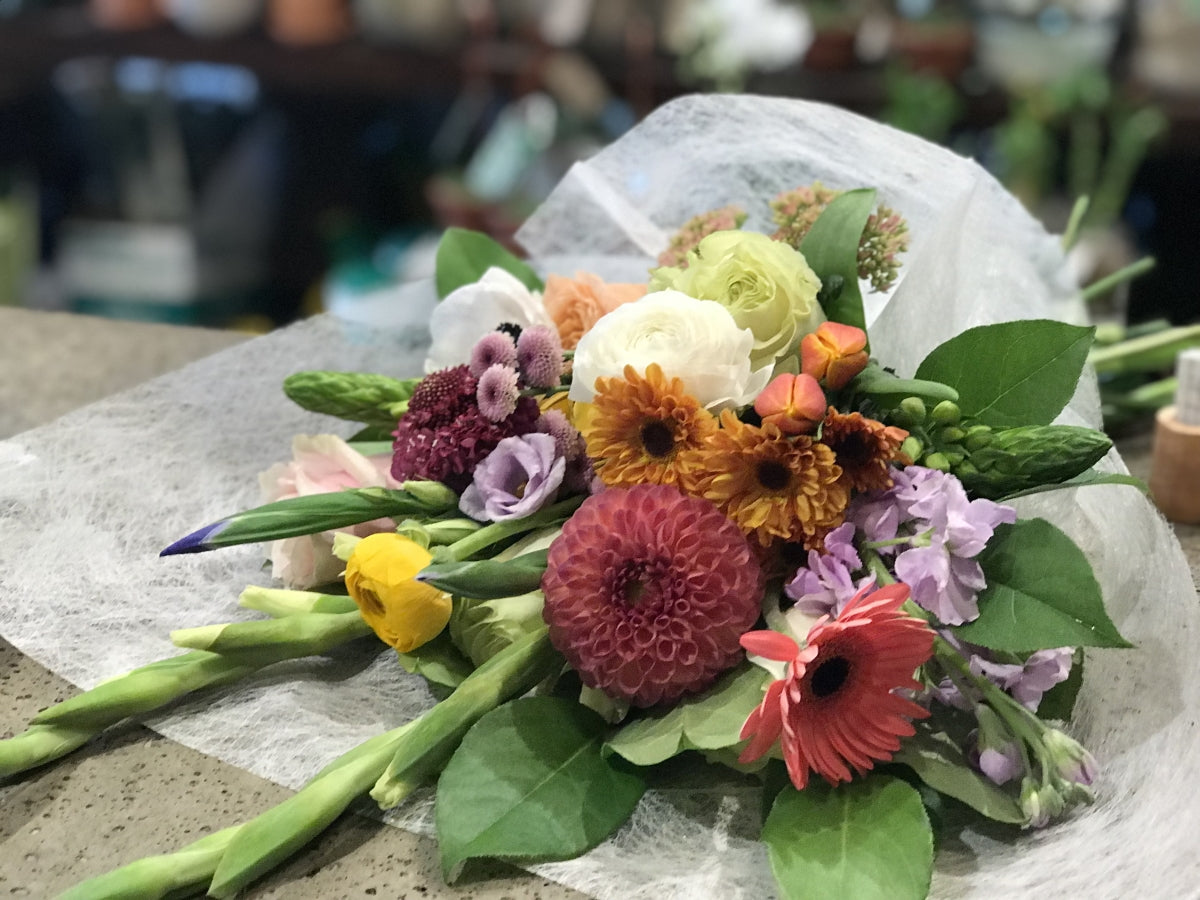We all know the joy of having a fresh bouquet on the table, those vibrant colours popping, and the sweet scent filling the room.
But for some of us, the mere thought of getting close to those floral wonders sends our noses into overdrive and our eyes into full waterfall mode.
In this guide, we’ll explore the best and worst flowers for people with allergies. Discover how to surround yourself or someone special with natural beauty without triggering those sneezes and sniffles.
Understanding Allergies and How They’re Triggered
Allergies can be a nuisance, and understanding what triggers them is the first step in managing your symptoms.
Essentially, allergies occur when your immune system overreacts to normally harmless substances. These substances, known as allergens, can include pollen from flowers, trees, or grasses.
When you come into contact with an allergen like pollen, your body produces antibodies. These antibodies cause the release of histamine and other chemicals in your body, leading to allergy symptoms such as sneezing, itching eyes, and congestion. It can set off a condition known as allergic rhinitis, often called hay fever.
The primary troublemakers behind hay fever are the pollen from trees and grasses rather than that from flowers. However, it's worth noting that flowers are not entirely innocent either, as they, too, can trigger an allergic response.
Pollen-heavy flowers tend to be the worst culprits for triggering allergies. These flowers produce large amounts of pollen that easily become airborne and can wreak havoc on sensitive individuals.
What are the Best Hypoallergenic Flowers?
Regarding hypoallergenic flowers, several varieties are known for causing minimal trouble for allergy sufferers.
These flowers typically produce less pollen or have heavier pollens that are less likely to become airborne.
Some of the best flowers for allergies include:
- Roses: Certain varieties of roses have lower pollen counts, making them a safer choice for those with allergies.
- Carnations: Their minimal pollen production and relatively low fragrance levels make them a safer choice for individuals prone to allergies.
- Tulips: With low pollen levels, tulips are generally well-tolerated by individuals with allergies.
- Orchids: If you're looking for a fragrant flower that won't cause allergies to flare up, consider orchids. These stunning blooms release minimal amounts of pollen and come in various colours and shapes, adding elegance wherever they're displayed.
- Hydrangeas: These gorgeous blooms have a low pollen count and are less likely to trigger allergic reactions.
- Daffodils: These bright, cheerful flowers produce very little pollen, making them a popular choice for those with allergies.
- Snapdragons: These charming flowers are often considered hypoallergenic due to their limited pollen production.
While no flower can be completely allergen-free, these options are considered some of the best choices for individuals looking to enjoy the beauty of flowers without the discomfort of allergies.

What are the Worst Flowers for Allergies?
Some flowers are particularly problematic for individuals with allergies due to their high pollen production and potent fragrances.
While reactions can vary from person to person, the following flowers are often considered the worst offenders for triggering allergy symptoms:
- Chrysanthemums: These vibrant and popular flowers can be troublesome for allergy sufferers due to their high pollen content and strong fragrance.
- Daisies: While daisies may appear harmless, they can trigger allergies in some individuals, especially those sensitive to their pollen.
- Jasmine: Despite its delightful aroma, jasmine can be problematic for those prone to allergies, as its powerful fragrance can irritate the respiratory system.
- Sunflowers: These popular flowers, with their striking appearance and large, pollen-filled centers, can also potentially provoke allergies, particularly for individuals sensitive to pollen.
- Baby's Breath: Often used as a filler in floral arrangements, baby's breath can trigger allergies due to its abundant pollen production.
- Freesia: Although prized for their delightful fragrance, freesias can provoke allergies in sensitive individuals, especially those with heightened sensitivity to floral scents
Additional Tips for Choosing Hypoallergenic Flowers
When choosing flowers that won't trigger allergies, there are a few other key tips to remember:
For starters, choose flowers with tight blooms instead of open ones. Closed blooms tend to release less pollen into the air, reducing the chances of allergy symptoms flaring up.
Look for flowers like lilies or daffodils that have petals tightly packed together.
In addition, opt for plants with showy petals but minimal visible stamens - these are typically lower in pollen content than others.
It's also important to consider where you place your allergy-friendly flowers. Avoid putting them in bedrooms or other areas where you spend a lot of time, as this can increase your exposure to allergens.
Best Flowers for Allergies Available in Ottawa
Terra Plants and Flowers in Ottawa has exquisite flowers and floral arrangements that don’t cause allergies.
We've got the perfect blossoms for every special moment, be it Christmas, Thanksgiving, or Mother's Day. Plus, we've got you covered with our speedy same-day flower and plant delivery service, available for the Greater Ottawa Area.
Send us an email to terraplantsandflowers@gmail.com or call us at 613-491-7477.
